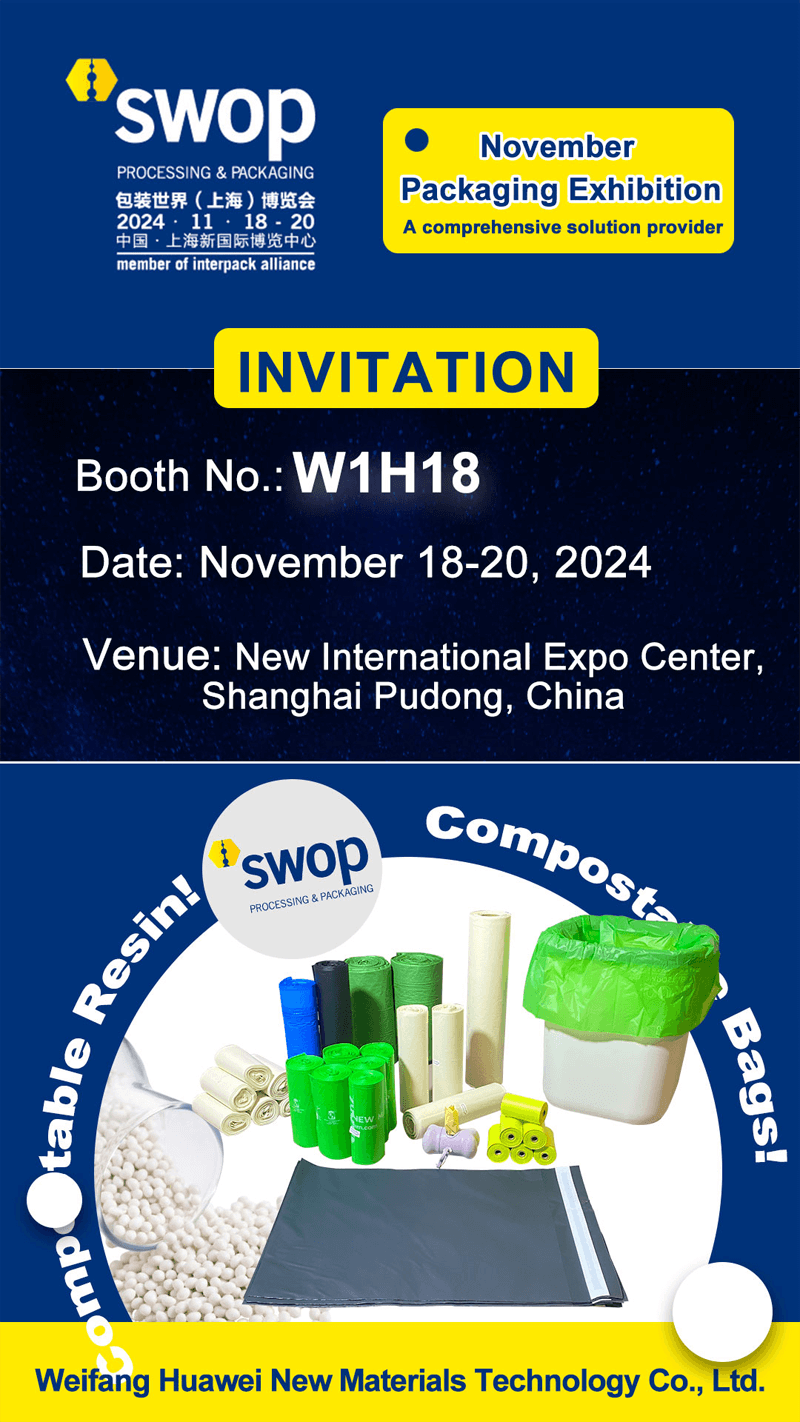Jan. 17, 2024
Composting bags can be biodegradable, but can only be carried out under specific conditions. Compostable bags need to be composted in specific composting facilities. Compostable bags are usually made from plant materials, and when treated by these facilities, they will recover to their basic organic components.

Degradable plastic bags include plastic bags that can be degraded by physical and biological factors (light, heat, or microbial action). The so-called aerobic degradation (i.e. accelerated degradation by catalysts or activators at high temperatures) or photodegradable starch polyethylene plastics can cause some environmental problems. The degradation rate of these biodegradable plastic bag materials is not as fast as that of compostable plastics, and they may also leave debris. These hydrophobic fragments formed by degradation have a large surface area and may migrate to groundwater and soil, adsorbing and retaining highly toxic hydrophobic substances such as PCB and DDT on their surfaces, resulting in a toxic substance content as high as 1 million times the background content, which is sufficient to become a transport system for toxic substances in the environment. Therefore, it is necessary to ensure that the product can be completely biodegradable in the extremely short time determined by the processing facilities.
Biodegradable plastic bags are plastic bags that can be fully digested by microorganisms in the processing system as food to obtain energy (entering the food chain). The determination of complete microbial digestion/utilization is measured by testing whether the carbon element in the test plastic can be completely converted into CO2 through microbial processes occurring in cells.

In addition to being biodegradable by microorganisms, a plastic bag that can be called "compostable" must also meet a time requirement. For example, ASTM 6400 (Specification for Compostable Plastics), ASTM D6868 (Specification for Biodegradable Plastics Used for Surface Coatings on Paper or Other Compostable Media), or EN 13432 (Compostable Packaging) standards stipulate that these materials should biodegrade within 180 days in an industrial composting environment. The industrial composting environment refers to a specified temperature of about 60 ℃ and the presence of microorganisms. According to this definition, compostable plastics do not leave fragments in the residue that have existed for about 12 weeks, do not contain heavy metals or toxic substances, and can sustain plant life.
Related Products
Latest News
The “Degradable Plastic Bags” You Throw Away Are Secretly Polluting Our Homes
Degradable Bags Become Organic Fertilizer After Use Safety and Environmental Protection
The Situation Of Plastic Waste In 2025
The total consumption and per capita consumption of plastic
Celebrating the Chinese New Year-Rejecting Excessive Packaging And Plastic Waste
What Is The Difference Between Biodegradable Bags And Fully Biodegradable Plastic Bags?
The origin of plastic can be traced back to the mid-19th century.
How Biodegradable Plastic Bags Decompose Without Releasing Toxins
How Bio Plastic Bags Support Sustainable Product Manufacturing
Do Bio Plastic Bags Release Harmful Substances During Decomposition?
Does Biodegradable Plastic Bags Have an Impact on Environmental Protection
The Difference Between Fully Degradable Plastic Bags And Pseudo Degradable Plastic bags
The Difference Between Fully Degradable Plastic Bags And Pseudo Degradable Plastic bags
The Difference Between Biodegradable Mailer Bags And Traditional Mailer Bags
How Long Does It Take For Wet Garbage And Different Plastic Bags To Degrade?
Degradable Plastic Bags - What Is The Difference Between Degradable, Biodegradable And Compostable?
Current Status and Future Development Trends of Biodegradable Plastic Bag Market in 2024
Traditional Plastic Bags Have Gradually Been Replaced By Biodegradable Plastic Bags
In 2024, Protect Our Planet And Make The New Year More Meaningful
How to Create the Perfect Packaging Field?
From November 22 to November 24, 2023, we participated in Shanghai World Of Packing.
